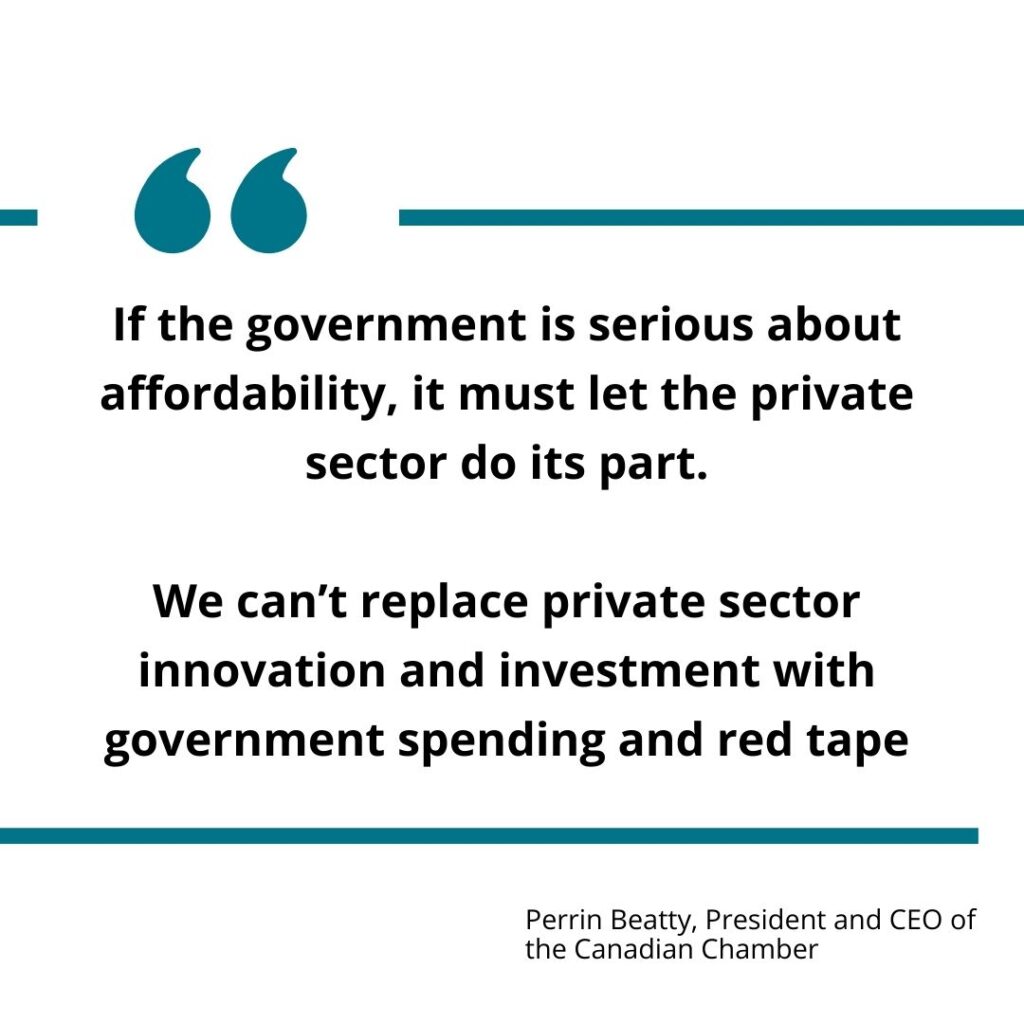Budget 2024 Must Focus on Growth & Prosperity
Early in the second quarter of 2024, Canada’s economic climate remains bleak. Last year, our GDP grew by only 1.1%, and the Bank of Canada predicted this week that it will grow by only 1.5 per cent in 2024. In addition, Canada’s productivity fell in 11 out of the past 12 quarters, undermining our global competitiveness and leaving Canadians collectively poorer. But the government cannot tax and spend us back to prosperity. Instead, it must unlock the ability of Canadian businesses to innovate, invest and grow.
“Canada’s competitiveness is slipping, and productivity continues to decline. This weak performance leaves Canadians poorer, with fewer opportunities to achieve their personal goals, and it forces them to pay more just to stay where they are. Without much greater growth, we won’t be able to maintain our standard of living or provide the services Canadians require,” says Perrin Beatty, President and CEO of the Canadian Chamber. “What we don’t need is new taxes, more rules and regulations, or more anti-business rhetoric. If the government keeps telling investors that they aren’t welcome here, they will go where they are wanted.”
❝ The government must treat business as a partner, not a problem. We need to prove we can, quite literally, deliver the goods the world wants and needs. ❞
– Perrin Beatty, President and CEO of the Canadian Chamber
The latest Canadian Survey on Business Conditions shows that where households most feel the pinch, consumer spending falls, weakening businesses in those regions, limiting job creation, and reducing the tax revenues that fund our social services.
“If the government is serious about affordability, it must let the private sector do its part. We can’t replace private sector innovation and investment with government spending and red tape,” says Beatty.
